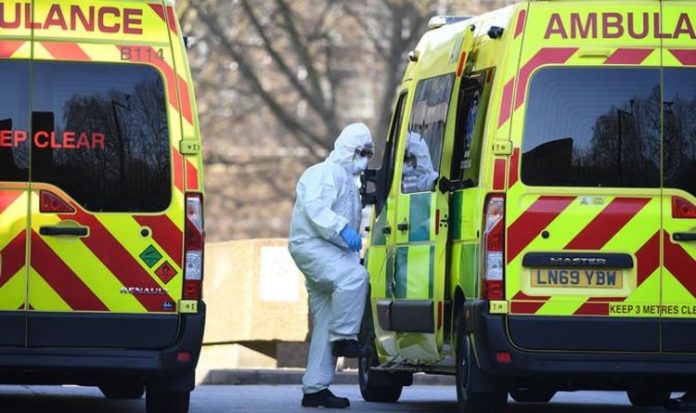Researchers from Imperial College London estimated the number of COVID-19 cases in the country has been doubling on average every seven to eight days. They found this increase is taking place across the country and in multiple age groups.
The study calculated the R rate for England is now at 1.7.
This means each coronavirus patient on average passes the disease to another 1.7 people.
Any R rate greater than one means the virus is spreading exponentially through the community.
On Friday the Government said it estimated the R rate for the entire UK to be between one and 1.2.
Speaking to The Times Professor Paul Elliott, who ran the study at Imperial, denied the increase can be attributed to more widespread testing.
He said: “Our large and robust dataset clearly shows a concerning trend in coronavirus infections, where cases are growing quickly across England and are no longer concentrated in key workers.
“What we are seeing is evidence of an epidemic in the community and not a result of increased testing capacity.
“This is a critical time and it’s vital that the public, our health system and policymakers are aware of the situation as we cannot afford complacency.”
READ MORE: Queen heartbreak – Will the Queen EVER return to Buckingham Palace?
Scotland and Wales are introducing similar rules but they won’t apply to children aged under 12.
Professor Elliot emphasised the value of detecting an increase in coronavirus cases quickly so authorities can react.
He said: “The really important thing here is that, if you like, this system was set up as an early warning system.
“And I think it has picked up the signal early.”
The number of coronavirus cases in the UK were estimated to be doubling every three to four days before the first national lockdown was introduced.
The northeast, northwest and Yorkshire and the Humber are the regions of England currently worst infected.
Cases have increased for all age groups but are particularly pronounced amongst those aged 18-24.
Reacting to the increase in cases Health Secretary Matt Hancock said: “We’ve seen all across the world how a rise in cases, initially among younger people, leads to hospitalisations and fatalities.
“The pandemic is not over, and everyone has a role to play to keep the virus at bay and avoid further restrictions.
“It’s so important that everyone abides by the law and socialise in groups up to six, make space between you and those outside your household, get a test and self-isolate if you develop symptoms and wash your hands regularly.
“It is vital you engage with NHS Test and Trace service if contacted to provide details of your close contacts and self-isolate if you are asked to do so.”







